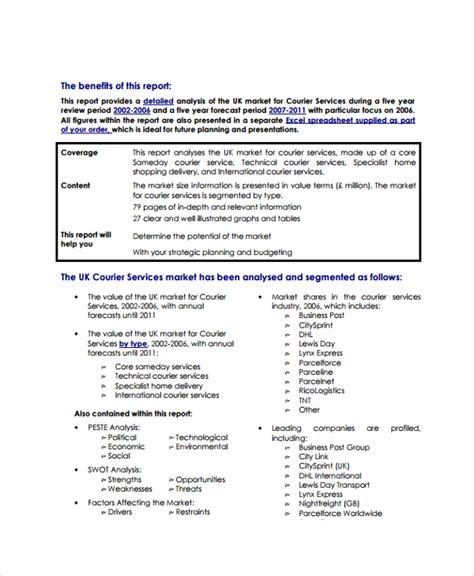Careers For Environmental Science Majors

Environmental science is a dynamic and interdisciplinary field that focuses on understanding the natural world and finding solutions to complex environmental challenges. With a degree in environmental science, graduates are equipped with a unique skill set that blends scientific knowledge, critical thinking, and a deep understanding of ecological systems. This article explores the diverse career paths available to environmental science majors, highlighting the real-world impact they can have and the exciting opportunities that await them.
Environmental Consulting and Sustainability

One of the most prominent career paths for environmental science majors is environmental consulting. Consultants play a vital role in helping businesses and organizations navigate environmental regulations, assess potential environmental impacts, and develop sustainable practices. They may work on projects ranging from site assessments for potential contamination to assisting with corporate sustainability initiatives.
For instance, an environmental consultant might be hired to evaluate the ecological impact of a proposed construction project. They would conduct field studies, collect data, and analyze the potential effects on local wildlife and ecosystems. Based on their findings, they would provide recommendations to mitigate any negative impacts, ensuring that the project proceeds in an environmentally responsible manner.
Key Skills and Responsibilities
- Fieldwork and Sampling: Environmental consultants often spend time outdoors, collecting samples and conducting surveys.
- Data Analysis: Proficiency in data analysis is crucial for interpreting results and making informed recommendations.
- Regulatory Knowledge: A deep understanding of environmental laws and regulations is essential for guiding clients.
- Project Management: Effective organization and communication skills are required to oversee projects from start to finish.
Government and Policy Making

Environmental science graduates can also make a significant impact by pursuing careers in government and policy-making roles. They can work at various levels of government, from local municipalities to national agencies, shaping environmental policies and regulations.
Consider the role of an Environmental Policy Analyst at a state environmental protection agency. In this position, the analyst would research and analyze existing and proposed environmental policies. They would assess the effectiveness of current regulations, identify areas for improvement, and provide recommendations to policymakers. Their work directly influences the development of strategies to address critical environmental issues, such as climate change or water resource management.
Skills and Impact
- Research and Analysis: Strong research skills are essential for gathering data and evaluating policy options.
- Critical Thinking: Environmental policy analysts must think critically to develop innovative solutions.
- Communication: Effective communication ensures that complex environmental concepts are accessible to policymakers and the public.
- Impact on Legislation: The work of environmental science professionals in government can shape laws that protect our planet.
Conservation and Wildlife Management
For those with a passion for nature and wildlife, conservation and wildlife management offer rewarding career paths. Environmental science majors can contribute to preserving biodiversity and managing natural resources effectively.
Imagine being a Wildlife Biologist working in a national park. In this role, you would study and monitor wildlife populations, their behavior, and their habitats. You might conduct research to understand the impacts of human activities on wildlife and develop conservation strategies to protect endangered species. Wildlife biologists often collaborate with park rangers and other experts to implement conservation plans and educate the public about the importance of wildlife preservation.
Key Responsibilities and Impact
- Field Research: Conducting field studies and collecting data on wildlife populations and habitats.
- Conservation Planning: Developing strategies to protect and restore ecosystems and wildlife.
- Education and Outreach: Engaging with the public to raise awareness about conservation efforts.
- Habitat Restoration: Participating in projects to restore and enhance natural habitats for wildlife.
| Conservation Role | Real-World Impact |
|---|---|
| Park Ranger | Enforcing regulations, conducting patrols, and educating visitors to protect natural areas. |
| Ecologist | Studying ecosystems, providing insights for conservation planning, and advising on sustainable land use. |
| Environmental Educator | Teaching others about environmental issues and inspiring sustainable practices. |

Renewable Energy and Green Technology
As the world shifts towards a more sustainable future, renewable energy and green technology sectors offer exciting career opportunities for environmental science majors. These professionals contribute to developing and implementing technologies that reduce environmental impact and promote a cleaner energy landscape.
For instance, an Environmental Engineer working in the renewable energy sector might be involved in designing and optimizing wind farms. They would assess potential sites, conduct environmental impact assessments, and develop strategies to minimize the ecological footprint of these projects. Environmental engineers also play a crucial role in ensuring that renewable energy technologies are safe, efficient, and environmentally responsible.
Skills and Innovations
- Engineering Knowledge: Proficiency in engineering principles is essential for designing and implementing sustainable technologies.
- Innovation: Environmental science professionals drive innovation by developing new green technologies and improving existing ones.
- Project Coordination: Collaborating with interdisciplinary teams to bring renewable energy projects to fruition.
- Sustainability Consulting: Advising businesses on adopting sustainable practices and transitioning to renewable energy sources.
Environmental Health and Safety

Environmental science majors can also focus on environmental health and safety, ensuring that workplaces and communities are free from environmental hazards and promoting overall well-being.
A career as an Occupational Health and Safety Specialist involves conducting inspections, investigating accidents, and developing safety protocols to protect workers and the environment. These specialists play a critical role in industries where environmental risks are present, such as manufacturing, mining, or construction. They work to identify potential hazards, implement preventive measures, and ensure compliance with health and safety regulations.
Key Responsibilities
- Hazard Identification: Conducting risk assessments to identify potential environmental and health hazards.
- Safety Training: Educating employees and communities about environmental health and safety practices.
- Emergency Response: Developing and implementing emergency response plans for environmental incidents.
- Regulatory Compliance: Ensuring that organizations adhere to environmental health and safety regulations.
Conclusion: Empowering a Sustainable Future
A degree in environmental science opens doors to a wide array of fulfilling and impactful careers. From consulting and policy-making to conservation and renewable energy, environmental science majors are at the forefront of addressing some of the most critical challenges facing our planet. By applying their knowledge and skills, they can drive positive change, protect our natural resources, and contribute to a sustainable future for generations to come.
The diverse career paths available to environmental science graduates reflect the interdisciplinary nature of the field and the growing demand for environmentally conscious professionals. Whether working in the private sector, government agencies, or non-profit organizations, these individuals have the power to make a real difference and shape a greener, more sustainable world.
FAQ
What are the key skills needed for a career in environmental science consulting?
+Environmental science consultants require strong analytical skills, proficiency in data analysis, and a deep understanding of environmental regulations. Effective communication and project management skills are also crucial for success in this field.
How can environmental science majors contribute to policy-making and legislation?
+Environmental science graduates play a vital role in policy-making by providing scientific expertise and evidence-based research. They can work as policy analysts, advisors, or researchers, influencing the development of environmental policies and regulations that shape our society’s response to critical environmental issues.
What are some entry-level jobs for environmental science majors in conservation and wildlife management?
+Entry-level positions in conservation and wildlife management include roles such as field technicians, research assistants, or park rangers. These roles provide valuable hands-on experience and contribute to the conservation and management of natural resources.



